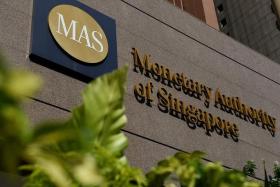New ‘buy now, pay later’ code of conduct can limit debt, but onus still on users to watch spending
The new $2,000 limit on “buy now, pay later” (BNPL) outstanding payments that kicks in on Nov 1 will help to constrain the temptation to spend without limits.
Industry watchers and experts said the limit and other measures under a new code of conduct for such payments launched on Thursday will benefit consumers, but they will still need to exercise discipline over their own spending.
A limit of $2,000 is definitely a good start, said Professor Lawrence Loh from the National University of Singapore (NUS) business school.
“If consumers want to go beyond the limit, they can turn to credit cards which have their own mechanism of safeguards,” he said.
Other new measures to be rolled out include having BNPL providers ensure their advertising and promotional materials are not misleading or deceptive. They also cannot solicit customers aggressively or market their services to customers who have asked to be excluded from such promotions.
Market researcher Diantha Chong, 25, said such measures are a good move as she has been using BNPL apps like Atome to pay for her online purchases when there are good deals or sales promotions, but has been worried about her spending.
“It’s harder to track how much I spend when I use these apps as a mode of payment... I notice that some BNPL providers are quite aggressive in their in-person promotions, so ensuring that they’re following the ethical marketing practices will be very helpful,” she said.
She added that she would still take a more cautious approach towards BNPL apps even with the new measures in place, and suggested that the age limit for these apps be raised to 21 as younger consumers may not know how to manage their finances properly.
Under the new code of conduct, BNPL providers will also have to cap fees and communicate all charges clearly to users, and not penalise customers who want to repay purchases in full early.
If a customer is facing financial difficulties, BNPL providers will have to consider waiving or deferring fees and charges. They will also work out a mutually acceptable payment arrangement with customers and not initiate bankruptcy proceedings.
BNPL providers will have to undergo an audit and accreditation process by a panel of independent expert assessors every three years.
The code was developed by the Singapore FinTech Association and eight industry players including Atome, Grab Financial Group and Shopback, with guidance from the Monetary Authority of Singapore.
Both consumers and industry watchers said caution is still required.
Final-year communications undergraduate Brandon Chia, 25, a user of BNPL services, said: “Even though the outstanding payment cap can be helpful for younger consumers with lower disposable income, they can ask their friends to open a BNPL account for them if they hit the spending limit.”
Mr Aloysius Fua, Ernst & Young’s Asean sustainable finance lead, said consumers, especially those financially strapped, could be juggling multiple payments on different BNPL platforms, or linking their monthly payments to their credit cards, which can easily lead to their spending escalating out of hand.
He added that one way BNPL providers can help is to enable customers to monitor their spending via aggregation services, track consolidated spending and manage their BNPL debt.
Despite the possible workarounds by determined spenders, Prof Loh reckons the new measures could make the business less attractive to the BNPL providers.
“Because the consumers’ payments for these services are interest free, a large proportion of their earnings come from charging late fees,” he said.
Mr Anton Ruddenklau, partner and head of financial services for KPMG Singapore, said consumers will ultimately have to bear the responsibility for their financial health and know their own limits.
“It’s also good for the industry that BNPL providers have to go through an accreditation process - that way, consumers will be able to choose providers that they trust,” he said.
Get The New Paper on your phone with the free TNP app. Download from the Apple App Store or Google Play Store now



